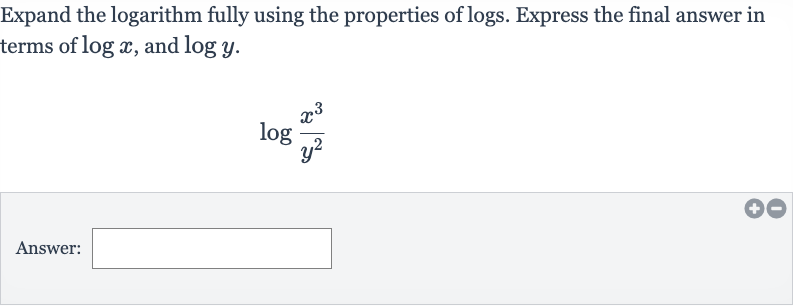Full solution
Q. Expand the logarithm fully using the properties of logs. Express the final answer in terms of , and .Answer:
- Identify Properties: Identify the properties used to expand . We will use the quotient property of logarithms to separate the numerator and denominator, and the power property to bring the exponents out in front of the logs. Quotient Property: Power Property:
- Apply Quotient Property: Apply the quotient property to the logarithm.Using the quotient property, we can write as .
- Apply Power Property: Apply the power property to both logarithms.Using the power property, we can bring the exponents out in front of each log: becomes , and becomes .
- Write Final Form: Write the final expanded form of the logarithm.Combining the results from steps and , we get:
More problems from Quotient property of logarithms
QuestionGet tutor help
QuestionGet tutor help
QuestionGet tutor help
QuestionGet tutor help
QuestionGet tutor help

